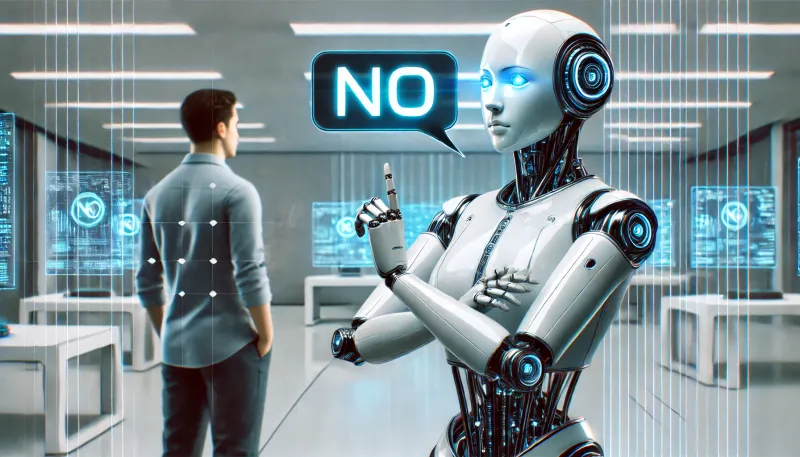Suno.ai is an avant-garde platform in the field of AI-generated music, aiming to democratize the process of music creation. By harnessing cutting-edge artificial intelligence algorithms, Suno.ai empowers users to craft professional-grade music, regardless of their musical background or expertise.
How Suno.ai Works
Suno.ai streamlines music creation by allowing users to input text prompts that encapsulate their creative vision. These prompts can range from lyrics and mood descriptions to specific musical elements. The AI processes these inputs to generate melodies, harmonies, and rhythms that align with the user's vision. This involves sophisticated algorithms that analyze the input and produce structured, engaging songs with a professional sound.
According to ElevenLabs (2024), Suno.ai's technology ensures that every detail, from lyrics to rhythm, is refined to perfection, making it an accessible tool for both amateur and professional musicians.
Key Features of Suno.ai
Suno.ai is designed to be user-friendly, making it easy for anyone to create music. Users can start with a simple text input, and the AI handles the rest, transforming ideas into complete songs. This accessibility opens up music creation to a broader audience, enabling individuals without any musical training to produce original songs or remix existing tracks with ease.
The platform supports a wide range of musical styles and genres, from soft piano melodies to dynamic guitar riffs, ensuring that the generated music matches the user's theme and mood. This versatility makes it an appealing tool for both aspiring musicians and seasoned artists. Aspiring musicians can experiment with different styles and rhythms, helping them improve their skills and confidence. On the other hand, professional musicians can use Suno.ai to streamline the song production process, quickly laying down new tracks and experimenting with various sounds.
Every song produced by Suno.ai boasts high-quality audio, with clarity and richness that capture and hold the listener's attention. This professional-grade quality is a significant draw for users looking to create music that sounds polished and engaging. The technology behind Suno.ai ensures that the final output is not only musically coherent but also sonically pleasing, making it a valuable tool for content creators across various domains.
What do Musicians think?
For aspiring musicians, Suno.ai provides a platform to experiment with different styles and rhythms. By allowing users to input their creative ideas and receive immediate musical feedback, Suno.ai helps budding artists hone their skills and build confidence in their musical abilities. This can be particularly beneficial for individuals who may not have access to traditional music education resources.
Seasoned artists can also benefit from Suno.ai's capabilities. Professional musicians can use the platform to streamline the song production process, enabling them to quickly lay down new tracks and experiment with various sounds. Additionally, Suno.ai's versatility allows experienced musicians to explore new musical territories and expand their creative horizons (Reddit, 2024).
Even individuals without any musical training can explore music creation using Suno.ai. The platform's user-friendly interface makes it possible for anyone to generate original songs or remix existing tracks with ease. This democratization of music creation opens up new opportunities for creative expression and allows non-musicians to engage with music in a meaningful way.
What is the Limit?
Despite its many advantages, Suno.ai does have some limitations. For instance, it may struggle with generating music in less common or highly specific genres. A Reddit user noted that while Suno.ai excels in producing coherent and high-quality electro-pop tracks, it can falter when tasked with creating music in styles like 80s neo-psychedelic jangle pop or glam metal (Reddit, 2024).
Making Money
Suno.ai offers several ways for users to monetize their AI-generated music. Users can create original music using Suno.ai and distribute it on platforms like YouTube, Spotify, and other streaming services. Some users have successfully monetized their content by uploading AI-generated songs and videos to their YouTube channels, benefiting from ad revenue and fan donations (Reddit, 2024). This demonstrates the potential for AI-generated music to be a source of income for content creators and musicians.
Another avenue for monetization is commercial licensing. Suno.ai allows users to license their AI-generated music for commercial purposes, including advertisements, films, and other media projects. The platform's terms of service typically grant commercial rights to users who subscribe to premium plans, enabling them to profit from their creations (Clifford Chance, 2023). This commercial aspect of Suno.ai's offerings provides users with the opportunity to use their AI-generated music in professional settings, thereby expanding their creative and financial opportunities.
Musicians and content creators can also use Suno.ai to produce custom tracks for clients. This can include creating background music for videos, podcasts, or other multimedia projects. By offering custom music production services, users can charge clients for the unique tracks generated by the AI. This business model allows creators to leverage Suno.ai's capabilities to meet specific client needs and generate income through bespoke music production.
However, the legality of monetizing AI-generated music, including works created with Suno.ai, is complex and evolving. One primary legal challenge is determining who owns the copyright to AI-generated music. Under current U.S. copyright law, copyright protection is only granted to works created by human authors. This means that purely AI-generated works may not be eligible for copyright protection, leaving them in a legal gray area (IU News, 2023). However, if a human creator significantly contributes to the final product by selecting, arranging, or modifying the AI-generated material, they may claim copyright over those human-authored parts (Clifford Chance, 2023).
The use of copyrighted material in training AI models has also led to legal disputes. For example, the Recording Industry Association of America (RIAA) has filed lawsuits against AI startups, including Suno, alleging that their models were trained on copyrighted songs without proper consent (Fortune, 2024). This highlights the importance of transparency and ethical data usage in AI development. Ensuring that AI models are trained on legally obtained data is crucial for avoiding legal conflicts and maintaining ethical standards.
Some legal experts argue that AI-generated works could be considered "transformative" and thus fall under fair use, especially if the AI significantly alters the original material. However, this is still a contentious area with no clear legal precedent, making it risky for creators to rely solely on fair use defenses (Silicon Republic, 2023). As the legal landscape continues to evolve, creators must stay informed about copyright laws and ethical considerations to navigate these complexities successfully.
Suno.ai's terms of service play a crucial role in defining the rights and responsibilities of users. Typically, these terms grant users the right to monetize their creations, but they may also include clauses that limit liability and specify how disputes will be resolved. Users should thoroughly review these terms to understand their rights and obligations (Reddit, 2024). Being aware of the platform's legal framework is essential for creators who wish to monetize their AI-generated music without facing legal challenges.
Conclusion
Suno.ai represents a significant leap forward in AI-driven music creation, offering a powerful tool for both novice and experienced musicians. By making music creation more accessible and enjoyable, Suno.ai is poised to have a lasting impact on the music industry. However, creators must navigate the complex legal and ethical landscape to successfully monetize their AI-generated works. As AI technology continues to advance, platforms like Suno.ai will likely play an increasingly important role in the future of music creation, providing new opportunities for creativity and innovation.
References
Clifford Chance. (2023). AI-Generated Music and Copyright. Retrieved from https://www.cliffordchance.com/insights/resources/blogs/talking-tech/en/articles/2023/04/ai-generated-music-and-copyright.html
ElevenLabs. (2024). Suno AI: Everything You Need To Know. Retrieved from https://elevenlabs.io/blog/suno-ai
Fortune. (2024). The 'move fast, break sh*t' ethos of today's AI startups is ... Retrieved from https://fortune.com/2024/06/25/riaa-lawsuit-suno-udio-perplexity-copyright-consent-ethics-eye-on-ai/
IU News. (2023). Ask the Expert: What are legal issues surrounding AI, its impact on the arts? Retrieved from https://news.iu.edu/live/news/31782-ask-the-expert-what-are-legal-issues-surrounding-ai-it
Reddit. (2024). Thoughts on Suno AI from a working musicians Perspective. Retrieved from https://www.reddit.com/r/aiwars/comments/1asiool/thoughts_on_suno_ai_from_a_working_musicians/
Silicon Republic. (2023). 'Legal minefield': The risk of commercialising AI-generated images. Retrieved from https://www.siliconrepublic.com/machines/ai-generated-images-legal-risks-copyright





